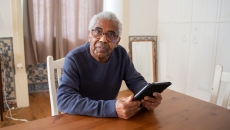Decision Support
The move will make it "simpler for our IT and developers, and will allow them to focus more on uncovering creative ways to improve patient care," said the health system's chief digital information officer.
The new institute will focus on AI and machine learning, virtual and augmented reality, 5G technologies, precision medicine, telehealth and more.
The two-year study uses predictive models, developed for skin cancer diagnosis, to help detect eczema and enable the prevention of future allergies and diseases.
The collaboration builds on clinical research using Numares' machine-driven metabolic diagnostics to enhance care for patients with chronic diseases.
Investment in the AI platform on Microsoft Azure could accelerate multimodal data analysis and performance – and ultimately improve patient outcomes.
AHRQ is helping the transition towards evidence-based recommendations to guide clinical decision-making that incorporates patients' needs and preferences.
The work is meant to promote closer and more coordinated use of SNOMED CT and Regenstrief's LOINC terminologies, helping improve health data exchange and reduce duplication.
The remote monitoring program for neurodegenerative conditions provides individualized care with brain-stimulating activities, memory training, and patient and caregiver education.
Realyze Intelligence, which launched in 2021, is working with Memorial Sloan Kettering Cancer Center to apply natural language understanding to real-world patient data.
"From the care team point of view, this means less activity but more action, less documenting but better documentation, and better coordination but less coordinating," one expert explains.









